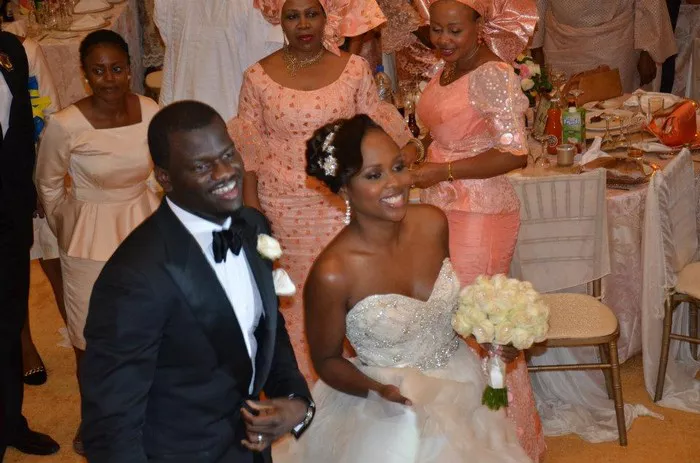Zuurbekom, South Africa — A resplendent ceremony marked the celebration of 55 marriages at a mass wedding hosted by the International Pentecostal Holiness Church (IPHC) over Easter Sunday, drawing thousands of well-wishers and reaffirming the congregation’s embrace of polygamy as part of its spiritual doctrine.
Among the couples united was 67-year-old Lesiba Molala, who formalized his union with a third wife, Evelyn Sekgalakane, joining his long-time wife Shirley Molala in what the church calls a “sister wife” relationship. The celebration, staged at the IPHC’s headquarters south-west of Johannesburg in the rural town of Zuurbekom, was as much a spectacle of tradition and spiritual devotion as it was a matrimonial ceremony.
Polygamy is actively encouraged and institutionally supported by the IPHC, an African independent church with more than 3.1 million followers across southern Africa. Seven of the 55 marriages solemnized that day added an additional wife to existing family units, while all participants expressed openness to future polygamous expansion.
“He is a God who approves of polygamy,” echoed through the packed auditorium throughout the five-hour celebration, underscoring the religious convictions behind the practice.
Shirley Molala, who has been married to Mr. Molala for 25 years, expressed her continued support for polygamy, which she views as being “rooted in Biblical teaching.” Speaking candidly about her relationship with Evelyn, she emphasized the importance of mutual respect, shared spirituality, and family unity. “We got along to a point where we’d wear matching clothes,” she recalled, reflecting on her past experiences with the Molala family’s previous co-wives.
A Sea of Color and Devotion
The celebration began around noon as waves of jubilant congregants gathered outside the venue in blue-and-white church uniforms and their Sunday best. Loudspeakers blasted hymns that mingled with spontaneous cheering, creating an atmosphere of vibrant devotion and community pride.
Each bridal party arrived with its own signature flair—some flaunting vivid lime-green ensembles, others featuring designer accessories. Dress codes were rigorously enforced at the entrance, with women required to wear head coverings, avoid trousers or sleeveless garments, and men mandated to don jackets. Inside, seating was segregated by gender in accordance with church protocol.
Dating is strictly prohibited within the IPHC. Mr. Molala shared that he first learned about polygamy after joining the church in the 1980s, adding that the practice offered a morally acceptable alternative to infidelity. “Because I realized that one woman would not be enough for me, I felt that rather than cheat, let me get another wife,” he explained.
Spiritual Ceremony Meets Lavish Procession
The formalities began with a striking visual display: each wedding party walked the red carpet to pose for photos before church leader Leonard Frederick G Modise—revered as “The Comforter”—made his grand entrance. He was escorted by a marching band, horse parade, and a convoy of luxury vehicles including a Rolls Royce.
The matrimonial ceremonies, which involved ring exchanges but no spoken vows, continued inside the white-carpeted auditorium well into the evening. The service concluded with a blessing for each couple and their families, delivered by Mr. Modise, with celebrations extending late into the night.
While colorful weddings are a staple of South African life, large-scale polygamous unions celebrated in a religious context remain rare. Though polygyny is legal under South African customary law, such marriages are usually low-profile and seldom integrated into Christian church services. The IPHC, however, has evolved to incorporate polygamous teachings into its doctrine since its founding in Soweto in 1962.
Polygamy in Practice
Mr. Molala’s journey in polygamy began in 1991 with his first wife, who was also a member of the church. Their union laid the foundation for a family-oriented approach to polygamy, with the couple jointly selecting Shirley nine years later. In early 2024, the church initiated the process that led to Evelyn’s inclusion in the Molala family.
Although initially hesitant, Evelyn warmed to the idea thanks to the openness and kindness shown by Shirley. A mother of three and a returning member of the church, Evelyn brings a new chapter to Mr. Molala’s family life. With her marriage to him, her children have been informally adopted, raising his total number of children to 13.
Each wife lives in her own household, though Evelyn is set to spend the early part of her marriage living with Mr. Molala before transitioning into her permanent home.
A Religious and Cultural Statement
According to the 2022 South African census, more than 85% of the population identifies as Christian, with around 8% practicing traditional African religions. The IPHC blends elements of both, reflecting a broader trend among African independent churches that merge indigenous customs with Christian theology.
Senior church official Mpho Makwana noted that polygamy has “evolved with the church” and remains a defining aspect of its teachings and practices.
As the sun set on the massive celebration, the Molala family stood united, offering a vivid illustration of how faith, tradition, and personal choice can intersect in deeply personal and publicly celebrated ways.


